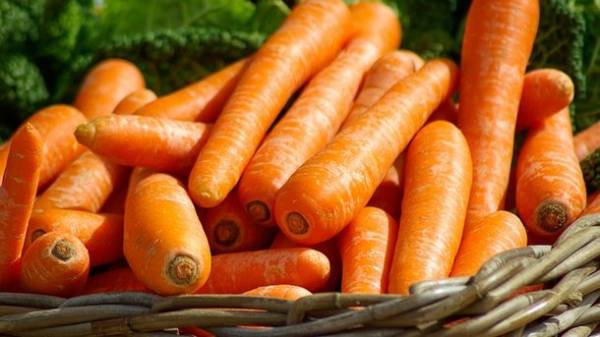
Exams in schools and universities, delivery of reports or just a lot of backlog of cases can unsettle anyone. In addition, in the routine of Affairs can easily forget about something serious.
It turns out that there are products that can improve the cognitive functions of a person, to improve care and ensure a stable concentration. It helps to learn better and retain more, I’m sure Tanya Lawlis, nutrition expert and associate Professor at the University of Canberra, reports the New time.
Protein and mental work
Protein consumed with food, nourishes the body with amino acids, thus allowing them to produce key chemicals for the brain, e.g., neurotransmitters.
They play a key role in transmitting signals from cell to cell. Key neurotransmitters, from the point of view of improvement of cognitive function and healthy brain is the serotonin, norepinephrine and dopamine.
Serotonin produced from amino acid called tryptophan, contained in rice, cottage cheese, salmon, red meat, carrots, peanuts and sesame seeds. He is involved in the regulation of memory, mood and contributes to memorization.
Amino acid tyrosine is involved in the production of the neurotransmitter norepinephrine needed to transfer information into long-term storage, and dopamine, contributing to increase motivation and activity. These substances rich in avocado, Turkey, chicken, red meat, dairy products, lentils, Lima beans and sesame seeds.
Eating foods with a low content of amino acids, for example, fast-food, will cause the levels of serotonin, dopamine and epinephrine in the body will fall. And that means – will worsen mood, lower levels of concentration and the ability to translate learned information into long-term memory.
Levels of neurotransmitters will also reduce the consumption of alcohol, caffeine and foods with a high content of refined sugar. This, in turn, will lead to reduction in motivation, mental lethargy and inability to concentrate.
Carbs for energy
Carbohydrates can provide a stable energy levels of care and concentration. Glucose energy storage in our body, formed by the carbohydrate is a key energy source for the brain. To provide a sustainable level of energy, it is necessary to be careful in the choice of carbohydrates consumed.
There are two large groups of carbohydrates – complex and simple. Complex carbohydrates contained in whole grain cereals, breads, pasta, fruits and vegetables. Simple carbohydrates, consisting mainly of glucose and fructose, contained in candies, energy bars, alcohol and soft drinks.
Complex carbohydrates are digested much more slowly. Slow absorption means that the energy is released slowly and, accordingly, longer. This will allow you to be more alert, focus better and remember information.
“Diabetes burnout”
After the feeling of lifting that is associated with the consumption of food high in simple and refined carbohydrates, always followed by decline.
After the assimilation of such products in the blood into glucose, which provides a short energy. The body (and brain) will quickly spend it, and it’s fading (or decline). As a result the person feels lethargic, irritated and sleepy.
Learning is not tied to memory, so it may happen: when the time comes to take the test or exam you will not be able to remember what was taught.
Nourishment for difficult test
To sustain a large and intense amount of work or the same exam, lasting more than three hours, you need to eat a light meal consisting of carbohydrates and protein. For example, baked beans on wholemeal toast, egg or tuna salad and a sandwich from not sifted flour.
If you are nervous, it is necessary to eat vegetable sticks and hummus toast. This will give nourishment to the body and brain. As for liquid, it is best to drink water.
On the brain affect short-term and long-term changes in diet. For overall health it is best to eat fruit, vegetables, meat, dairy products and cereals. Even if the last few months the food was for you in the background, change it for the better just before a critical point can help.
Remember, the healthier the food is, the better your brain remembers information.







